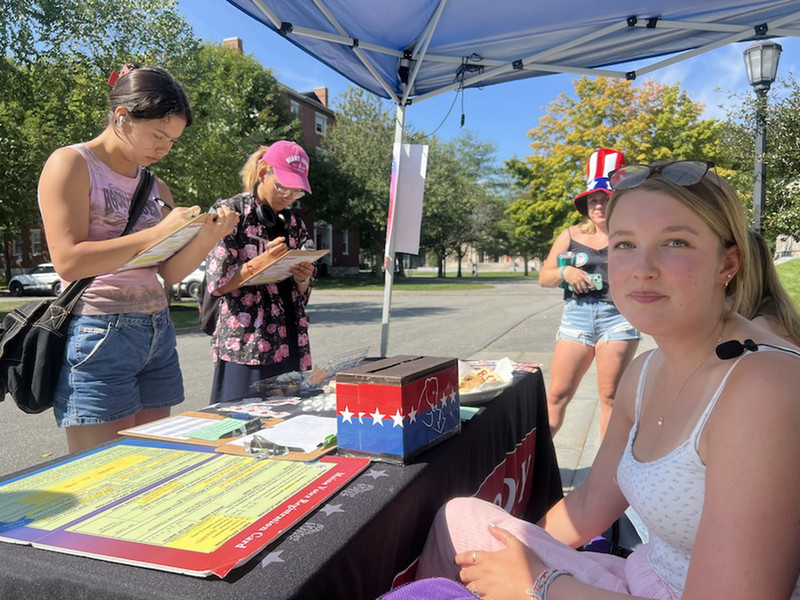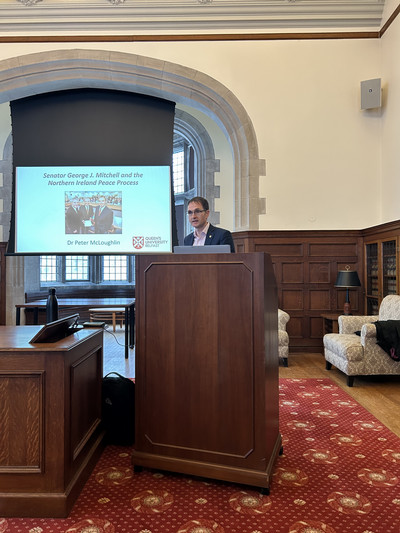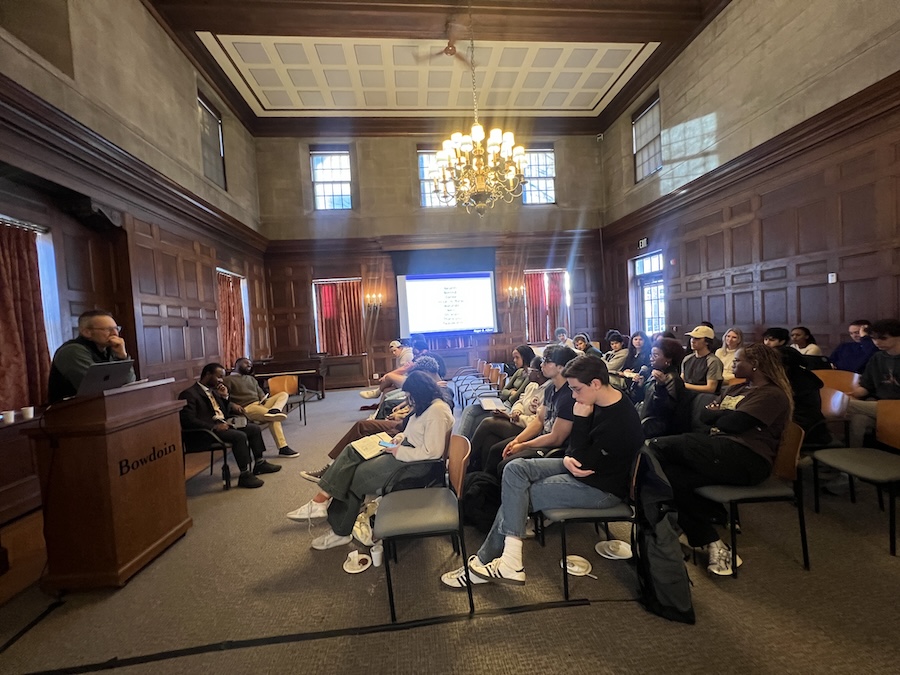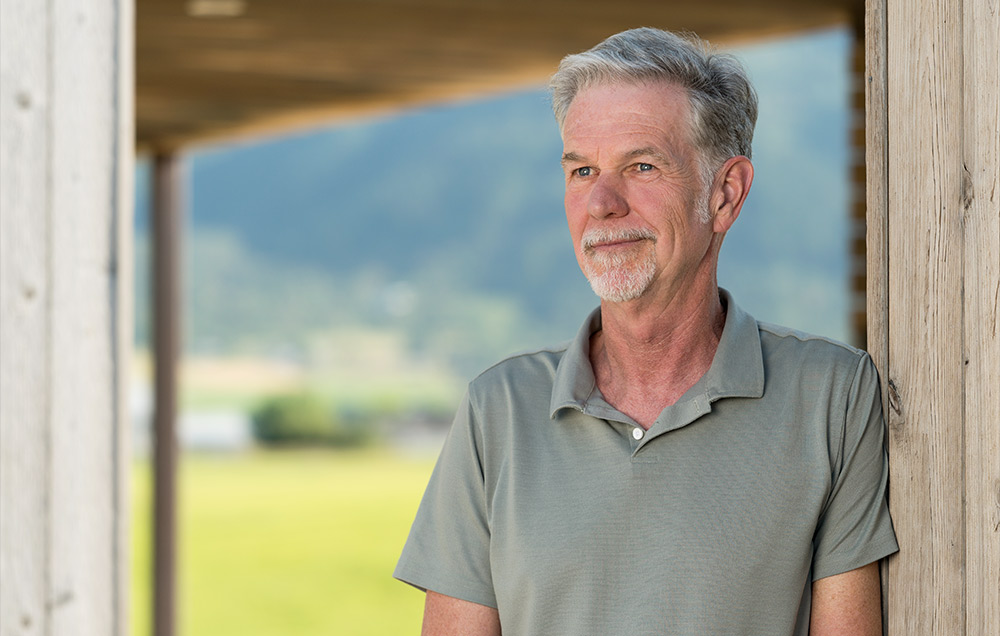Learning to Disagree
By Tom PorterDisagreeing strongly with others is fine, said Arthur Brooks. It’s even OK to be angry. The problem, he explained, is when that anger is mixed with disdain and turns into hatred or contempt. “Coercion and power will not carry the day… your only chance is persuasion.”
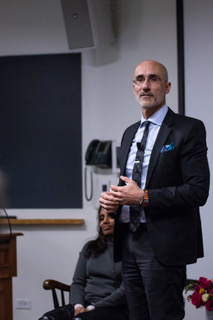
Brooks was talking to a packed Beam Classroom in the Visual Arts Center. The evening forum, on November 7, 2019, was the culmination of a two-day visit, the first of two trips Brooks is making to Bowdoin this academic year as the first Joseph McKeen Visiting Fellow.
Earlier this year Brooks stepped down after a decade as president of the American Enterprise Institute (AEI), a conservative think tank based in Washington, DC. He now serves on the faculty of Harvard University, with a joint appointment between the Kennedy School and Harvard Business School.
The forum was attended by a mix of Bowdoin students and faculty, and was moderated by Peter M. Small Associate Professor of Africana Studies and English Tess Chakkalakal and Associate Professor of History Page Herrlinger. Attendees were asked to read Brooks’ latest book Love Your Enemies: How Decent People Can Save America from the Culture of Contempt, and to watch the documentary The Pursuit, about his life and work. Brooks began by discussing the genesis of his book. The central message, he explained, is an appeal for empathy, for human beings, regardless of political leaning, to make more effort to understand each other.
He recalled an event in 2014 that was critical in developing this idea. Brooks was speaking at a fund raising dinner in New Hampshire as president of AEI, in front of a highly partisan group of 600 ultraconservatives and fifteen Republican presidential hopefuls, including Donald Trump. He took the opportunity to remind the audience that people who don’t agree with them are not stupid or evil: “They’re simply Americans who disagree with you on public policy, and if you want to persuade them—which should be your goal—there’s only one tool to do that, and that’s through love.” There was no applause, said Brooks, but he had experienced an epiphany: “In a free society, where there’s no threat of violence, real moral courage [involves] standing up to the people with whom you agree on behalf of those with whom you disagree… We need to declare war on our habits of communication.” Nobody in history, he observed, has ever been persuaded with insults and hatred.
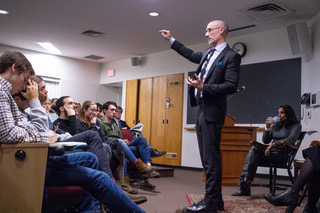
Brooks is a strong advocate for free market enterprise and sees capitalism as the best way for bringing people out of poverty—a topic explored in The Pursuit. His talk was followed by a lively Q&A, in which a couple of faculty members took Brooks to task for oversimplifying his arguments. Government professor Henry Laurence, for example, accused Brooks of being “too ready to praise market capitalism as an automatic cure for poverty, without considering the importance of some government intervention.” Fair point, said Brooks, who clarified that he does not view capitalism as something that necessarily excludes government intervention. In fact, he responded, “one of the greatest achievements of capitalism has been to make it possible to have a welfare system.”
Professor Herrlinger said she felt the documentary was directed primarily at a male audience and neglected subjects such as childcare and unpaid labor by women. This is valid criticism, said Brooks, who admitted the film was not broad enough in this respect. “I would do it differently next time,” he said.
The hot topic of climate change came up in questions from students and faculty, in particular the perceived support of AEI for several climate change skeptics. Brooks said this criticism was unjustified and denied charges that the organization had directly funded such efforts, although AEI had sponsored events at which climate change deniers had spoken. The inclusion of such diverse viewpoints, he insisted, is all part of what he terms the “healthy competition of ideas.”
Classroom Time
During his visit, Brooks also attended a couple of classes: Gary M. Pendy Sr. Professor of Social Sciences Jean Yarbrough’s political philosophy class (GOV 2200) and Principles of Microeconomics (ECON 1101) with Associate Professor of Economics Daniel Stone. “My students loved it,” said Yarbrough. “Arthur made Aristotle come alive, captivating the class with his questions about the good life.”
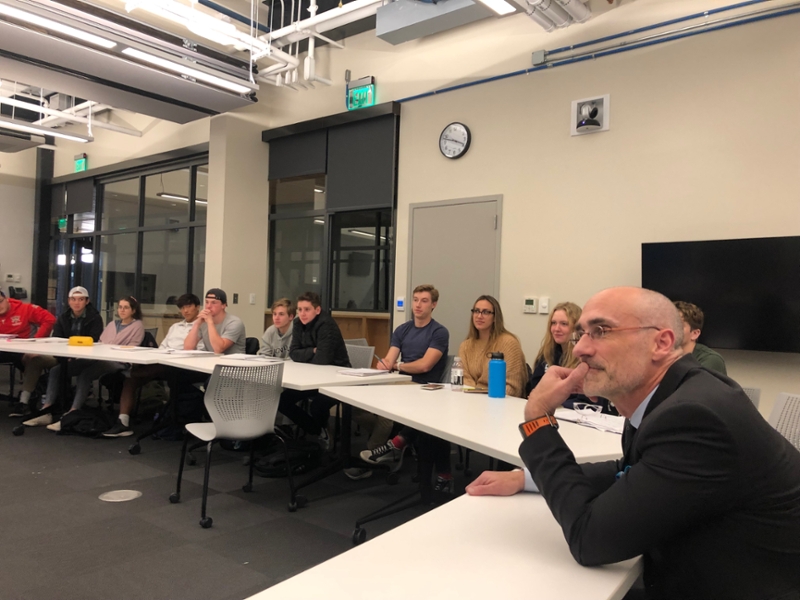
Stone said his students came up with some thoughtful comments and questions, including: “Does America have a responsibility to help the poor around the world?” “How do we insure that work here in the US pays a living wage?” and “Is the American dream dying?” “Brooks provided everyone with a friendly, thoughtful, and energetic response,” said Stone. “He of course talked about the merits of capitalism, but also acknowledged the presence of market failures, uncertainty, and the need for smart regulation—and for the importance of ‘morals before markets.’”
Arthur Brooks is scheduled to return to campus next semester for another two-day visit as the Joseph McKeen Visiting Fellow.
